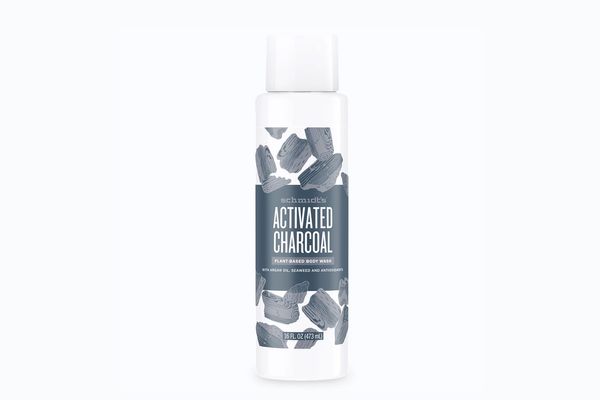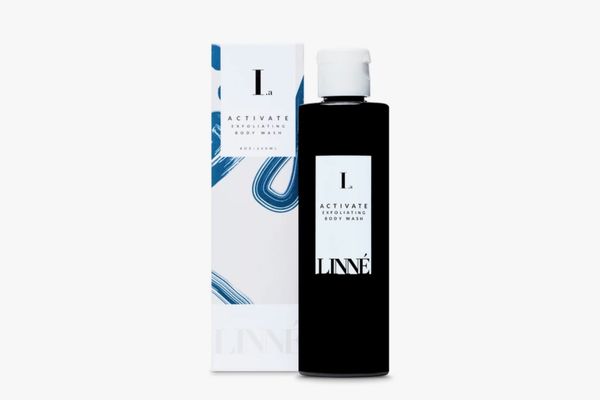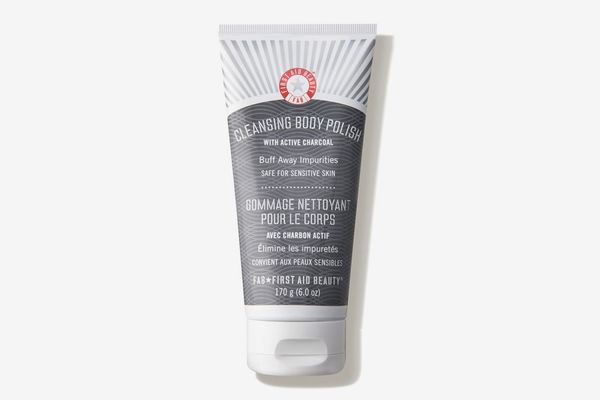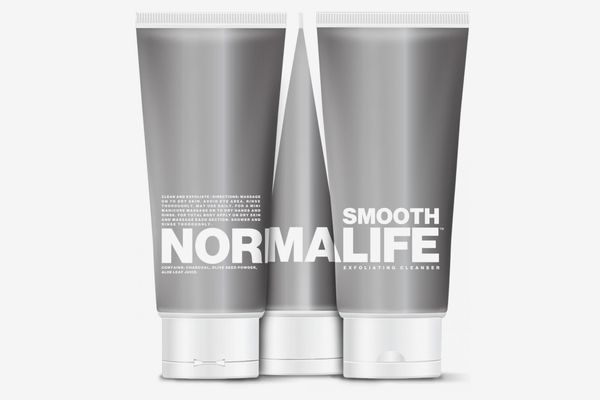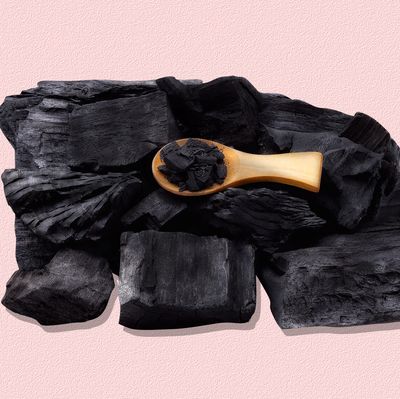
There’s living on the edge, and then there’s giving up deodorant during a heat wave. Between the possible link to cancer and the way it’s been yellowing all my white shirts, deodorant feels like a product I should learn to live without. This means I need to rely on something else to prevent me from becoming over-ripe, and that something is charcoal.
Recently, my bathtub has accumulated a small cityscape of charcoal-based body washes. Schmidt’s Activated Charcoal Body Wash offers to keep your skin clean but moist. LINNÉ Botanicals Activate Body Wash uses activated charcoal powder to wash away impurities. First Aid Beauty Cleansing Body Polish claims the charcoal in its formula helps slough off dirt. And NormaLifeSmooth Exfoliating Cleanser contains charcoal and ground-up olive pits to keep your face and body smooth. They’re leaving black residue all over my tub, but I love them all.
When I was little, I thought the smell of charcoal emanating from my father’s grill was intoxicating. It remains one of my favorite smells, but unfortunately, you can’t spell “intoxicating” without “toxic,” and somewhere in my late teens I learned that it was a carcinogen. That’s regular charcoal, though. In the wellness arena, activated charcoal is considered not only safe, but beneficial. It’s supposed to soak up dirt and bacteria and leave you cleaner than before.
Charcoal has found its way into skin care, most notably cleansers, face masks, and deodorants. Dirty Lemon even makes a charcoal drink that you’re supposed to consume daily “after your heaviest meal” to ease digestion. With my four charcoal body washes, I’m clearly the target audience for these claims. But how true are they?
I first noticed charcoal in toothpastes about 20 years ago, where it was supposed to whiten teeth. But after my charcoal toothpaste turned both my mouth and my sink an oozing bubbly black, I decided the mess wasn’t worth it and opted for the tidier Crest Whitestrips.
Instead, the activated charcoal that has activated my heart comes in the form of the body wash. Dark black or gray splatters don’t bother me on my shower walls the way they did in my mouth. For one thing, they’re easily wiped away when they’re fresh and transitory. Also, if anything, I think of those scrubbing bubbles as a clean, human-friendly version of a bath-and-tile cleaner. To borrow from the late ’70s ad for Dow’s Scrubbing Bubbles (and to date myself), they work hard so I don’t have to.
Charcoal is a byproduct of burnt cellulose. It doesn’t grow; it’s made by harvesting wood, coconut, or bamboo. Burn one of these at high temperatures in a low-oxygen environment and you get the kind of charcoal that’s bagged and sold for grilling. Add a steaming process, and you reach activated charcoal, which can suck up dirt and grime like a vacuum.
“Activated charcoal works because of its open, porous structure,” explains Jenna Levine, founder of LINNÉ Botanicals. Without absorbing into our bodies, activated charcoal can adsorb — or, in non-chemistry terms, stick itself to — not only bacteria but impurities of all kinds, including pollutants, toxins, venom, excess oil, chemicals, micro-particles and pharmaceuticals.
Hence its use in treating drug overdoses, since drugs and toxins can bind to it. Even vets give activated charcoal to poodles when they’ve eaten (poisonous, for them) chocolate. But in its body wash liquid form, does the stuff still have the power to suck the dirt from my body and send it down my drain?
“Confirmed!” says Michelle Wong Ph.D., science educator at Lab Muffin Beauty Science in Sydney, Australia. Still, she’s not about to place it above the other body washes in my bathroom. “I’m not convinced they have enough time in contact with your skin to work much better than a standard cleanser,” says Wong. “But they’re not much more expensive than a regular cleanser and they’re not harmful, so I personally wouldn’t avoid them, but I wouldn’t go out of my way to use them either.”
Which tracks with what I’d been thinking. I derive a hippie-dippy pleasure from using these scrubs and goos to clean my bits, but they have a lane and they are staying in it. They are not deodorants, nor are they purported to be. Like toothpaste, they clean, and might even help stave off B.O., but I can’t expect them to protect me all day, especially if stress comes into play.
So on really important days when I suspect that my nerves could kick my sweat glands into overdrive, I will add a swipe of deodorant. Those days, fortunately, are few and far between, but when they occur, the deodorant is also activated-charcoal-based. Fortunately for all of my white T-shirts, that formula is not black.
Shop the Story
Infused with Argan oil, seaweed, and antioxidants, this has the texture of a traditional body wash. It’s grit free — not scrublike — and has a nice outdoorsy scent.
You can thank volcanic ash for the pumicelike texture of this gentle scrub, and you can thank the essential oils of vetiver and eucalyptus for making it smell so divine.
This gentle exfoliant is an excellent smoother — particularly helpful if self-tanner is in your future.
NormaLife founder (and fashion designer) Norma Kamali recommends using this scrub of activated charcoal and finely ground olive pits on dry skin for optimal results, but using it on wet skin is fine, too.
If you buy something through our links, New York may earn an affiliate commission.


